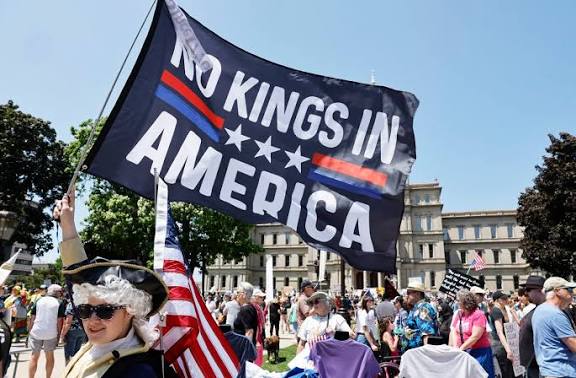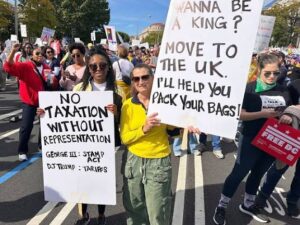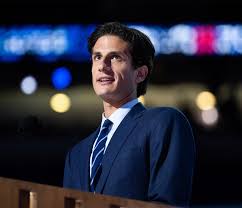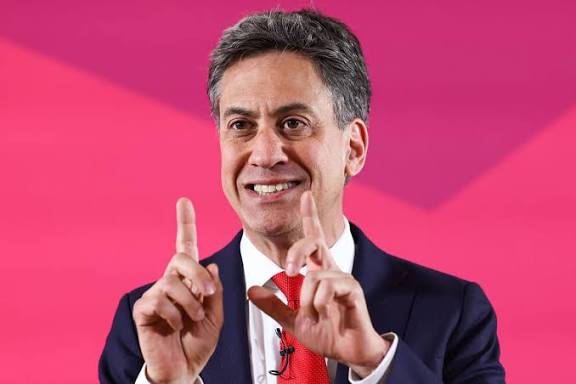GOP Leaders Attack No Kings Protesters: Public Opinion Turns Heated

Millions of Americans joined anti-Trump protests, but Democrats are less popular than the president and are divided over how to fight back. Today we will discuss about
GOP Leaders Attack No Kings Protesters: Public Opinion Turns Heated
Across the United States, the “No Kings” protests have resurfaced with fresh urgency — and GOP leaders are responding with sharp rhetoric. What began as a decentralized, mass movement against perceived authoritarianism has become a major political flashpoint, with public debate boiling over into questions of patriotism, democracy, and free speech.
What Is the “No Kings” Movement?

The No Kings movement is a grassroots protest coalition united around a central message: “America belongs to its people, not rulers.” Organizers include progressive and liberal organizations such as Indivisible, the ACLU, End Citizens United, and labor unions, among others.
The protests are explicitly anti-authoritarian. Many participants view the Trump administration’s consolidation of power, aggressive executive actions, and confrontation with Congress as an existential threat to democratic checks and balances.
The current round of rallies is not small: over 2,600 “No Kings” events have been scheduled across the U.S. Some are also international, including protests outside U.S. embassies.
GOP’s Reaction: Branding the Protest “Hate America” Rallies
Republican leaders have strongly condemned the protests — and not just as a political nuisance. They are calling them “hate America” rallies, suggesting they represent something deeply unpatriotic and dangerously fringe.
House Speaker Mike Johnson (R‑Louisiana) has been especially vocal. He referred to the protests as “the Hate America rally.”
Johnson went further, predicting that the crowds would include “Hamas supporters,” “Antifa types,” and “Marxists.”
Majority Whip Tom Emmer (R‑Minnesota) echoed the language, calling the movement aligned with a “terrorist wing” of the Democratic Party.
House Majority Leader Steve Scalise (R‑Louisiana), and Republican Conference Chair Lisa McClain (R‑Michigan) have also used similar framing.
Linking the Protests to the Government Shutdown
Republicans are binding the No Kings protests to the broader—and highly consequential—issue of the federal government shutdown, which has been ongoing.
GOP leaders, including Johnson and Emmer, argue that Democrats are using the rallies as leverage: that they refuse to reopen government funding until after the protests, because they depend on the energized protest base.
National Economic Council Director Kevin Hassett claimed that moderate Democrats are concerned about political fallout and primaries, which is why they’re holding out.
Transportation Secretary Sean Duffy accused No Kings organizers of “running the show” in the Senate.
This line of attack frames the protests not just as ideological dissent but as tactical maneuvers in a high‑stakes political conflict.
Are GOP Claims Grounded in Reality?
Critics of the GOP’s framing say the accusations don’t hold up under scrutiny.
Peaceful Protests
Protesters and organizers insist that the No Kings rallies are overwhelmingly peaceful. For example, Sen. Chris Murphy (D‑Connecticut), speaking ahead of a D.C. rally, said Republicans are “trying to brand protesters as ‘terrorists’ to suppress rally turnout.”Indeed, multiple sources report little to no major violence or large-scale arrests connected to earlier No Kings demonstrations.
First Amendment Rights
For many organizers, this is not just a political protest — it’s a defense of constitutional values. Co-founder Ezra Levin of Indivisible argues that GOP leaders are trying to stifle dissent:“They fear mass peaceful protests … The one thing an unpopular authoritarian regime is scared of is mass, organized, peaceful people‑power.”
Levin says the free publicity generated by Republican attacks has boosted turnout:
“I did not pay a dollar for this free publicity. It is incredible.”
Funding and Organization
Some Republicans allege foreign funding or outside agitators. For instance, Senator Roger Marshall (R‑Kansas) implied the protests were “Soros paid-for,” calling participants “professional protesters” and even suggesting deployment of the National Guard.However, No Kings is not a tightly centralized operation — it’s more of a coalition. Axios reports that, according to Indivisible co-founder Greenberg, “this is not a coalition that has a platform or a legislative agenda”; it’s a broad tent of people united by a shared concern for authoritarian drift.
Free Speech, Not Hate Speech
Supporters dispute the “hate America” label. Senator Bernie Sanders called Johnson’s remarks “ridiculous,” insisting that protesters are motivated by concern for democracy, health care, and checks on executive power.And some commentators suggest that the real risk to democracy is not from the protesters, but from equating dissent with disloyalty.
Political Backlash and Internal GOP Tension
Not all Republicans are entirely aligned with Johnson’s hardline rhetoric. While many GOP leaders have condemned the protests, some voices warn that the party may be underestimating the political risks.
Senator Ted Cruz (R‑Texas) has urged his party to “take political peril seriously,” noting the enormous turnout and energy of the protestors.
On the media front, Joy Behar, co-host of The View, publicly challenged Johnson’s framing, arguing that calling the rallies “hate America” is hypocritical in light of January 6 and other acts of division.
These voices suggest that the GOP’s aggressive line risks backfiring — by alienating moderate voters or energizing the opposition.
Public Perception: Patriotism vs. Partisan Polarization
The public reaction to the GOP’s attacks has been sharply divided, reflecting broader polarization in American politics.
Supporters of No Kings argue that their activism is deeply patriotic. One protester in Bethesda, Maryland, carrying a sign, said, “Nothing is more patriotic than protesting.”
Many demonstrators adopt humor, satire, and theatrics — frog costumes, oversized banners, even inflatable props — to defuse tension and reclaim narrative space.
Critics, especially on the right, warn that the movement represents an extremist fringe, raising alarm about ties to radical ideology and funding.
Yet independent observers note that the protests resonate deeply with ordinary citizens, not just ideological activists. The marches included marching bands, banners referencing the Constitution, and people who “aren’t there to start trouble, they just want you to hear them.”
This tension touches a core question: What does patriotism look like in a democracy? Is dissent a sign of disloyalty or a fundamental expression of civic responsibility?
The Stakes: Power, Democracy, and Elections
Government Shutdown as Leverage
Whether or not the No Kings protests are directly driving the shutdown, the GOP’s narrative connects the two in the public eye. By linking peaceful protests to a refusal to fund government, Republicans seek to delegitimize the movement and frame it as part of a political gambit — not grassroots activism.Energized Voters
The energy on the ground could have electoral consequences. Cruz warns that ignoring such a mobilized base risks disaster for Republicans in future elections.First Amendment and Civil Liberties
The backlash raises vital questions about free speech and the limits of protest. Are political leaders crossing a line by implicitly threatening protestors? Is branding dissenters as “terrorists” part of a broader trend to criminalize opposition?Authoritarianism Accusations
Protesters see their work as a bulwark against what they call the increasingly authoritarian nature of the current government — centralization of power, marginalization of checks and balances, and erosion of democratic norms.
Risks for the GOP
The GOP’s framing strategy carries several risks:
Mobilizing the Opposition: By attacking the No Kings movement aggressively, Republicans may be galvanizing more participation. Some organizers have claimed that GOP attacks have spurred growth in registrations and public interest.
Undermining Republican Legitimacy: If the protests are overwhelmingly peaceful, calling them “terrorist” or “hate America” could backfire, making Republicans look like they fear democratic dissent.
Alienating Moderates: Not all voters see peaceful protest as extremist. Labeling dissenters as un-American may alienate independent or moderate voters who believe in democratic norms.
Focusing on Messaging Instead of Solutions: By framing the protests as partisan threats, GOP leaders may avoid substantive discussion of the underlying issues: health care, executive power, government shutdown, and corruption.
Defenses from Protest Organizers
Organizers of No Kings push back strongly against GOP attacks:
They emphasize peaceful protest, trained de-escalation, and constitutional rights. Indivisible says it has trained “tens of thousands” in safety, non-violence, and civil disobedience.
They argue their message is pro‑America, not anti‑America. Their goal, they say, is to call out power grabs, not to destroy the country.
They reject the idea that protests are funded by shadowy interests: while coalitions exist, there is no single master funder or hierarchy.
They warn that labeling protestors as terrorists or anarchists is a slippery slope that threatens democratic rights.
Broader Implications for American Democracy
The clash over No Kings reflects a deeper democratic tension:
Who defines patriotism? This debate challenges who gets to claim the mantle of “real American values” — the ones waving flags at protests, or the ones in power equating dissent with disloyalty.
Power and Protest: At its core, this moment reminds us that mass mobilization matters. When citizens turn out in large numbers, peaceful and organized, they signal a vitality in democracy — and that seems to scare entrenched power.
Political Polarization: The No Kings backlash underscores how polarized American politics has become. Instead of seeing protests as a natural democratic expression, leaders on one side view them as existential threats.
Possibility of Change: For protestors and their allies, No Kings isn’t just a one-off event; it’s part of a broader movement to reimagine political accountability, limit executive overreach, and reassert democratic norms.
Conclusion: A Defining Moment
As the No Kings protests grow in scale and intensity, the Republican assault on them highlights a fraught moment in U.S. politics. On one side, GOP leaders are deploying alarmist rhetoric to frame dissent as dangerous and un-American. On the other, protesters are insisting that their movement is the essence of American democracy — people united, peacefully, against tyranny.
Public opinion, for its part, is deeply divided. But in a democracy built on protest, speech, and mobilization, how leaders respond to dissent arguably reveals as much about their commitment to democratic ideals as the protestors themselves.
The stakes are high: the future of democratic norms, the legitimacy of public dissent, and the very nature of political power in America may hinge on how this moment plays out.
How useful was this post?
Click on a star to rate it!
Average rating 0 / 5. Vote count: 0
No votes so far! Be the first to rate this post.
About the Author
usa5911.com
Administrator
Hi, I’m Gurdeep Singh, a professional content writer from India with over 3 years of experience in the field. I specialize in covering U.S. politics, delivering timely and engaging content tailored specifically for an American audience. Along with my dedicated team, we track and report on all the latest political trends, news, and in-depth analysis shaping the United States today. Our goal is to provide clear, factual, and compelling content that keeps readers informed and engaged with the ever-changing political landscape.




